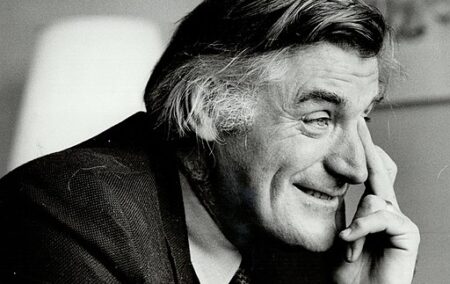Ted Hughes, the former British Poet Laureate, has been added to a dossier of writers who benefited from slavery and colonialism, by the British Library.
The dossier is part of the British Library’s attempts to be ‘actively anti-racist’. It has also identified a number of other famous British writers as having links to slavery and colonialism, including Lord Byron, George Orwell, and Oscar Wilde.
The British Library’s website says the following: ‘Some items now at the British Library, previously owned by particular named figures cited on these pages, are associated with wealth obtained from enslaved people or through colonial violence. Curators in the Printed Heritage Collections team have undertaken some research to identify these, as part of ongoing work to interpret and document the provenance and history of the printed collections under our care.’
However, the institution has been heavily criticized for including Hughes, whose connection to slavery and colonialism is tenuous, at best. Hughes, who was born in Yorkshire in 1930, is related to Nicholas Ferrar, through his mother. Ferrar was born in 1592 and was ‘deeply involved’ in British colonization efforts on the east coast of North America. There is no evidence that his distant relative, Hughes, or Hughes’s family, benefited financially in any way from Ferrar’s activities.
Hughes, who died in 1998 after having been appointed as Poet Laureate in 1984, was born to a working-class family in Mytholmroyd in West Yorkshire.
Hughes was also known for being married to an American poet, Sylvia Plath. She committed suicide in 1962. Hughes and Plath had been married for six years and had two children together.
Hughes’s biographer, Sir Jonathan Bate, questioned the decision to include Hughes, and was quoted as saying: ‘It’s ridiculous to tar Hughes with a slave trade connection. And it’s not a helpful way to think about writers. Why on earth would you judge the quality of an artist’s work on the basis of distant ancestors?’
Image: Roy.akarshak, CC BY-SA 4.0 https://creativecommons.org/licenses/by-sa/4.0, via Wikimedia Commons

